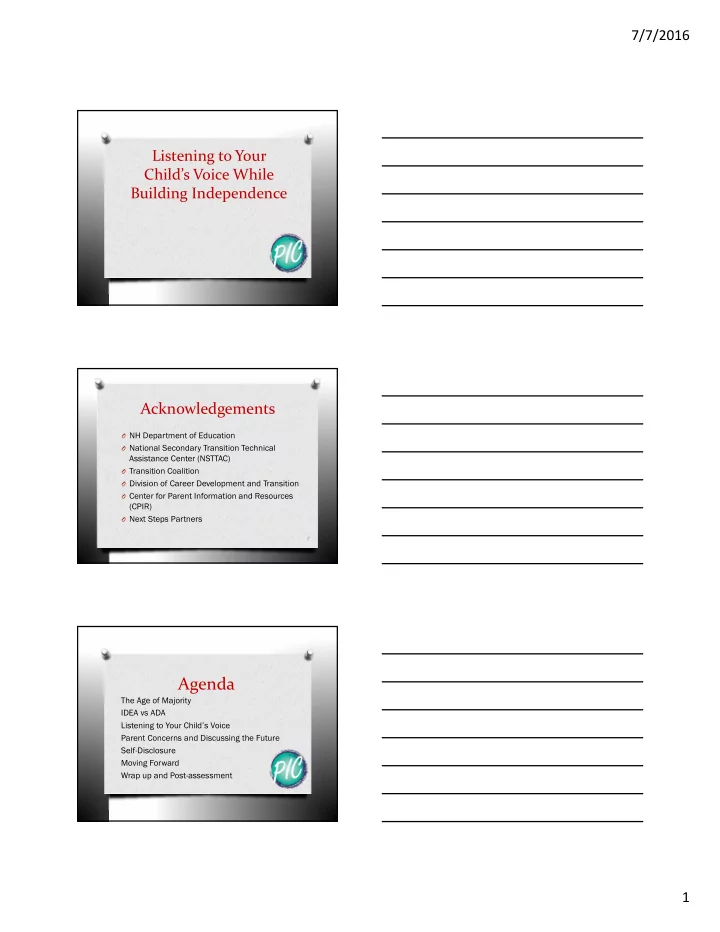

7/7/2016 Listening to Your Child’s Voice While Building Independence Acknowledgements O NH Department of Education O National Secondary Transition Technical Assistance Center (NSTTAC) O Transition Coalition O Division of Career Development and Transition O Center for Parent Information and Resources (CPIR) O Next Steps Partners 2 Agenda The Age of Majority IDEA vs ADA Listening to Your Child’s Voice Parent Concerns and Discussing the Future Self-Disclosure Moving Forward Wrap up and Post-assessment 1
7/7/2016 Objective Develop an increased understanding and concrete ideas about how you can help your child prepare for life after high school. Age 18: The Age of Majority O The laws O Who is in charge O Expectations O Consequences O No IEP after High School IDEA vs ADA ID IDEA EA AD ADA Type of Law Education, Civil rights status, entitlement eligibility Disability One of 13 Impairment in categories major life activity Ensures FAPE Equal access Responsibility Parent and school Student Services Evaluation, Reasonable specialized accommodation instruction, accommodations & modifications 2
7/7/2016 Listening to your Child’s Voice O IEP Meetings during Transition Student attendance Current Assessment Address interests, skills, strengths and weaknesses Set goals for life after high school Review accommodation and modification needs O Prepare your child to participate Know their disability Know their strengths and weaknesses Practice self-advocacy Parent Concerns O How will I know what’s going on? O Will he be isolated? O Can he handle his money? O Can he hold a job? O Will he take care of his health? O Can he live on his own? O Who is going to wake him up? Discussing the Future O Further education/employment O Transportation O Money management O Hygiene or self-care O Medica tion management O Dietary issues O Housing issues O Social situations 3
7/7/2016 Starting Now O Wake themselves up O Actively participate in IEP meetings O Schedule her own appointments O Refill her own medications O Use a time management system O Gain work or volunteer experience O Learn independent living skills Self ‐ Disclosure O Does she know enough to describe herself to someone else? O What does she gain by disclosing? O Does she have to? O Who and when should she consider disclosing? Moving Forward O Accepts and understands disabilities O Sets realistic goals O Self advocates O Uses resources O Has an understanding of acceptable social skills O Knows rights and responsibilities 4
7/7/2016 Next Steps The contents of this presentation were developed under a grant from the US Department of Education, H323A120003. However, those contents do not necessarily represent the policy of the US Department of Education, and you should not assume endorsement by the Federal Government. Project Officer, Corinne Weidenthal. 5
Recommend
More recommend